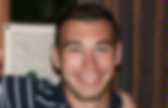

Human-Computer Interaction Seminar | Stanford Video Course. 70 Things Every Computer Geek Should Know. | Arrow Webzine. The term ‘geek’, once used to label a circus freak, has morphed in meaning over the years. What was once an unusual profession transferred into a word indicating social awkwardness. As time has gone on, the word has yet again morphed to indicate a new type of individual: someone who is obsessive over one (or more) particular subjects, whether it be science, photography, electronics, computers, media, or any other field. A geek is one who isn’t satisfied knowing only the surface facts, but instead has a visceral desire to learn everything possible about a particular subject.
A techie geek is usually one who knows a little about everything, and is thus the person family and friends turn to whenever they have a question. How to become a real computer Geek? Little known to most, there are many benefits to being a computer geek. You may get the answer here: The Meaning of Technical Acronyms 1. 2. If you rolled your eyes here, that is a good thing. 3. 4. 5. 6. 7. Category:Programming Tasks. Programming tasks are problems that may be solved through programming. When such a task is defined, Rosetta Code users are encouraged to solve them using as many different languages as they know. The end goal is to demonstrate how the same task is accomplished in different languages. These are the Programming Tasks that have been defined and solved. Feel free to add solutions in languages not already included. The Category:Simple is a small subset with only "really simple" tasks, like "Hello World", and demonstrations of basic language-features.
The Category:Draft Programming Tasks is a list of tasks, some of which are just awaiting more implementations before they can be promoted to tasks. Others may well have problems, (check their discussion and history pages). Read the guidelines on creating new tasks. The following 871 pages are in this category, out of 871 total. Code Complete 2nd Edition - Code Complete 2 Home Page. Programmer's Reference Wiki. Higher Computing For Everyone - Learn Programming - Free Programming Classes Online. This is bound to be a question foremost on a lot of people's minds from beginners on up. There is a lot of depth to this question, and I think this is a great place to continue to after Lesson 1. As strange as it sounds, all programming languages, no matter how cryptic they appear, are designed to be understood only by humans, not computers. Even assembly language is written to be understood only by humans. There is only one language that your computer understands, the language of 1s and 0s.
The magic of computing is that sequences of 1s and 0s flowing non stop inside of your computer make everything happen. The first fundamental principle of programming I want you to learn is this: Programming languages exist in order to make it possible to do a great many operations (think trillions) with very few instructions.
The second principle I want you to learn is related: Good programmers figure out ways to do complex tasks, and convert these into simple instructions. 1. 2. Makin' it work: musings of the math gladiator: 30 lessons learned in computing over the last ten years. Programmer 101: Teach Yourself How to Code. I Got 99 Problems, but Developing Ain't One. A List Apart. Carsonified. About the Network. How To Become A Hacker. Copyright © 2001 Eric S. Raymond As editor of the Jargon File and author of a few other well-known documents of similar nature, I often get email requests from enthusiastic network newbies asking (in effect) "how can I learn to be a wizardly hacker?
". Back in 1996 I noticed that there didn't seem to be any other FAQs or web documents that addressed this vital question, so I started this one. A lot of hackers now consider it definitive, and I suppose that means it is. Still, I don't claim to be the exclusive authority on this topic; if you don't like what you read here, write your own. If you are reading a snapshot of this document offline, the current version lives at Note: there is a list of Frequently Asked Questions at the end of this document. The five-dots-in-nine-squares diagram that decorates this document is called a glider.
If you find this document valuable, please leave me a tip on Gittip. If you want to be a hacker, keep reading. Teach Yourself Programming in Ten Years.